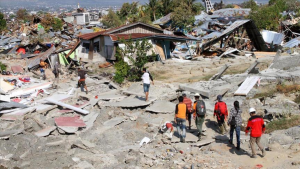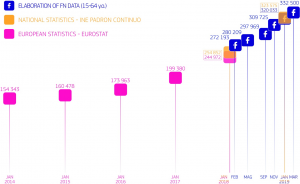Key information
Country/ies
Afghanistan, Albanie, Algérie, Andorre, Angola, Antigua-et-Barbuda, Argentine, Arménie, Australie, Autriche, Azerbaïdjan, Bahamas, Bahreïn, Bangladesh, Barbade, Bélarus, Belgique, Belize, Bénin, Bhoutan, Bolivie (État plurinational de), Bosnie-Herzégovine, Botswana, Brésil, Brunéi Darussalam, Bulgarie, Burkina Faso, Burundi, Cabo Verde, Cambodge, Cameroun, Canada, République centrafricaine, Tchad, Chili, Chine, Colombie, Comores, Congo, Rep., Costa Rica, Côte d’Ivoire, Croatie, Cuba, Chypre, Tchéquie, République populaire démocratique de Corée, République démocratique du Congo, Danemark, Djibouti, Dominique, République dominicaine, Équateur, Égypte, El Salvador, Guinée équatoriale, Estonie, Eswatini, Éthiopie, Falkland Islands, Fidji, Finlande, Former Yugoslavia, France, Gabon, Gambie, Géorgie, Allemagne, Ghana, Grèce, Grenade, Guatemala, Guinée, Guinée-Bissau, Guyana, Haïti, Honduras, Hongrie, Islande, Inde, Indonésie, Iran (République islamique d’), Iraq, Irlande, Israël, Italie, Jamaïque, Japon, Jordanie, Kazakhstan, Kenya, Kiribati, Koweït, Kirghizistan, République démocratique populaire lao, Lettonie, Liban, Lesotho, Libéria, Libye, Liechtenstein, Lituanie, Luxembourg, Madagascar, Malawi, Malaisie, Maldives, Mali, Malte, Îles Marshall, Mauritanie, Maurice, République de, Mexique, Micronésie (États fédérés de), Monaco, Mongolie, Monténégro, Maroc, Mozambique, Myanmar, Namibie, Nauru, Népal, Pays-Bas, Nouvelle-Zélande, Nicaragua, Niger, Nigéria, Macédoine du Nord, Norvège, Oman, Pakistan, Palaos, Panama, Papouasie-Nouvelle-Guinée, Paraguay, Pérou, Philippines, Pologne, Portugal, Qatar, République de Corée, République de Moldova, Roumanie, Fédération de Russie, Rwanda, Saint-Kitts-et-Nevis, Sainte-Lucie, Saint-Vincent-et-les Grenadines, Samoa, Saint-Marin, Sao Tomé-et-Principe, Arabie saoudite, Sénégal, Serbie, Serbia and Montenegro, Seychelles, Sierra Leone, Singapour, Saint-Martin (partie néerlandaise), Slovaquie, Slovénie, Îles Salomon, Somalie, Afrique du Sud, Soudan du Sud, Espagne, Sri Lanka, Occupied Palestinian Territory, Soudan, Suriname, Suède, Suisse, République arabe syrienne, Tadjikistan, République-Unie de Tanzanie, Thaïlande, Timor-Leste, Togo, Tonga, Trinité-et-Tobago, Tunisie, Türkiye, Turkménistan, Tuvalu, Ouganda, Ukraine, Émirats arabes unis, Royaume-Uni de Grande-Bretagne et d’Irlande du Nord, États-Unis d’Amérique, Uruguay, Ouzbékistan, Vanuatu, Venezuela (République bolivarienne du), Viet Nam, Yemen, Zambia, Zimbabwe
Data sources
Summary
The Global Skill Partnership project consists of bilateral labor migration agreements between a country of origin and destination, in which destination countries supply technology and finance to train potential migrants in their countries of origin, and countries of origin provide that training and gets support for the training of non-migrants too. The project aims to address demographic imbalances and future migration pressures, skills shortages, “brain drain”, and contribute to development. Multi-stakeholders' suggestions are considered for the decisions of both parties.
The project uses a "dual-track" model which gives trainees the choice between the “home” or “away” track. The former eventually integrates the trainee into the local labour market, with increased skills and earning potential, while the latter supports the trainees’ legal and safe migration.
Results
This program has existed for ten years. There are three partnerships between Belgium and Morocco in ICT, Germany and Kosovo in construction, and Australia and the Pacific Islands in diverse vocational skills. However, the program has nearly 60 agreements, either current or completed, worldwide.
Last modified
16 Mai 2022



